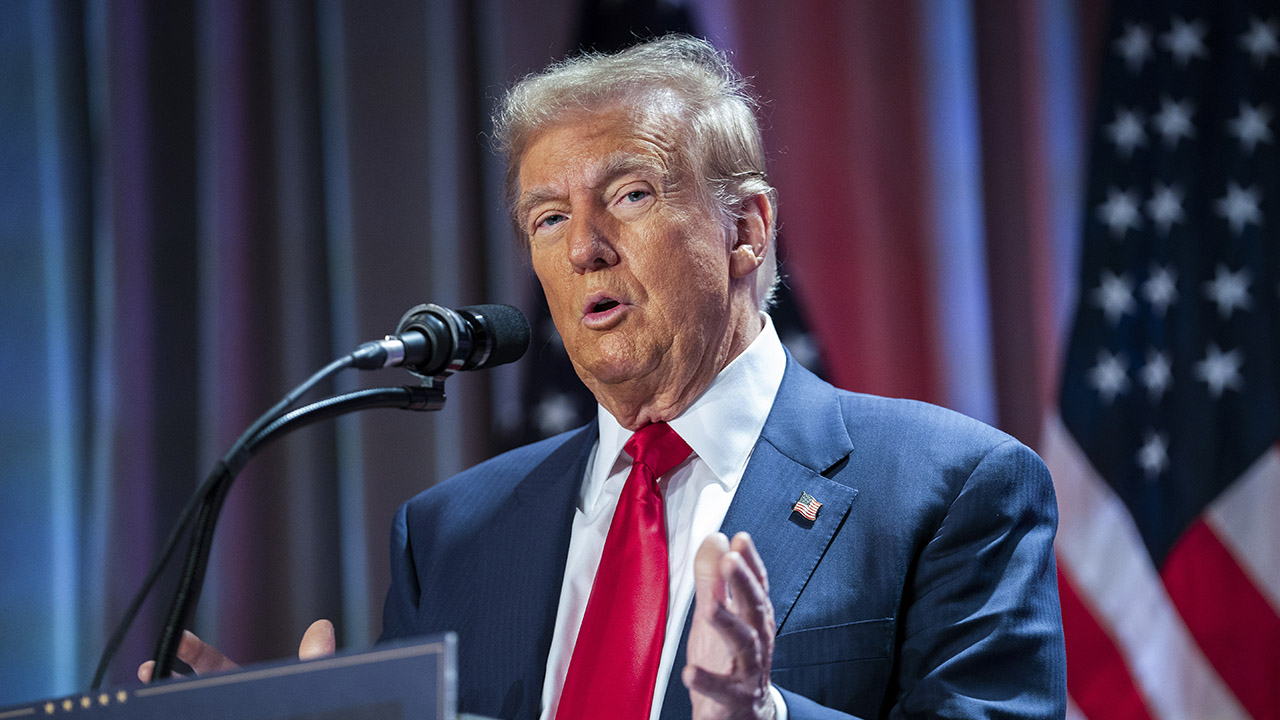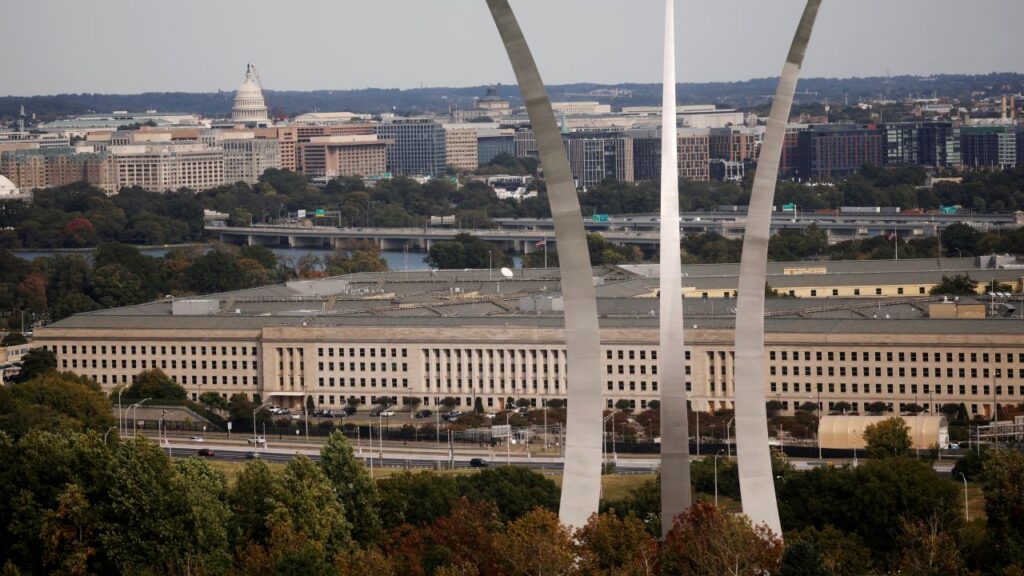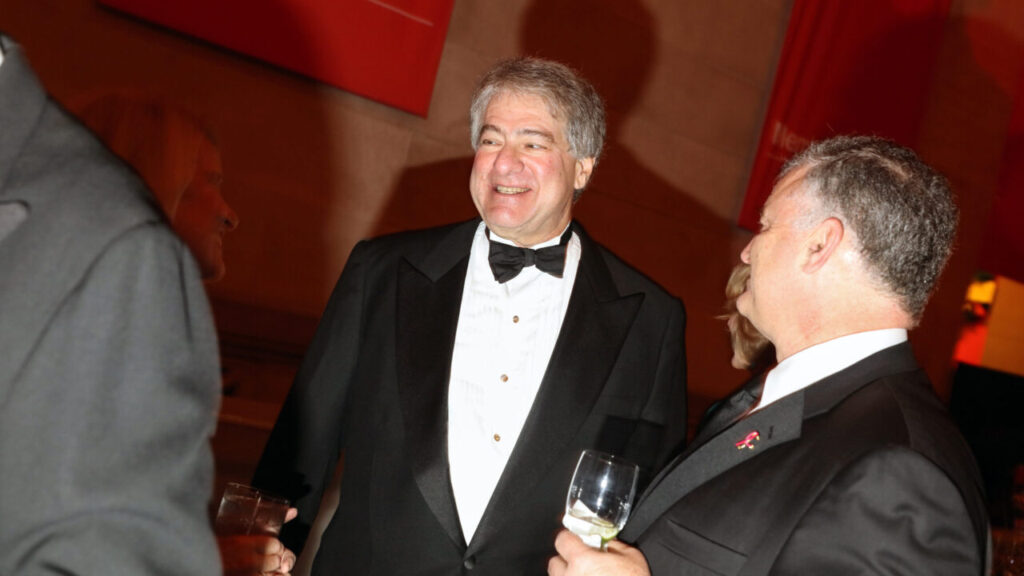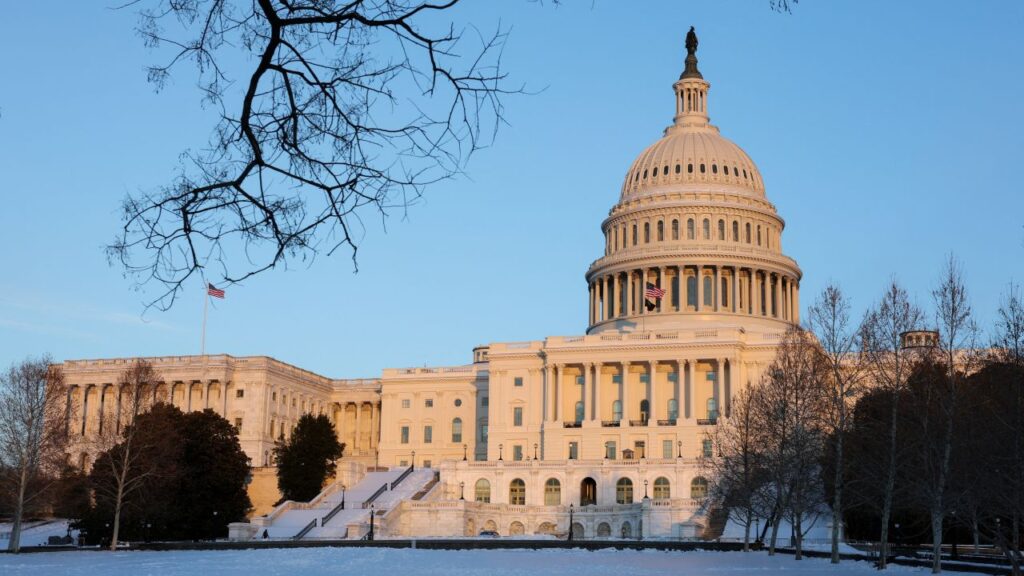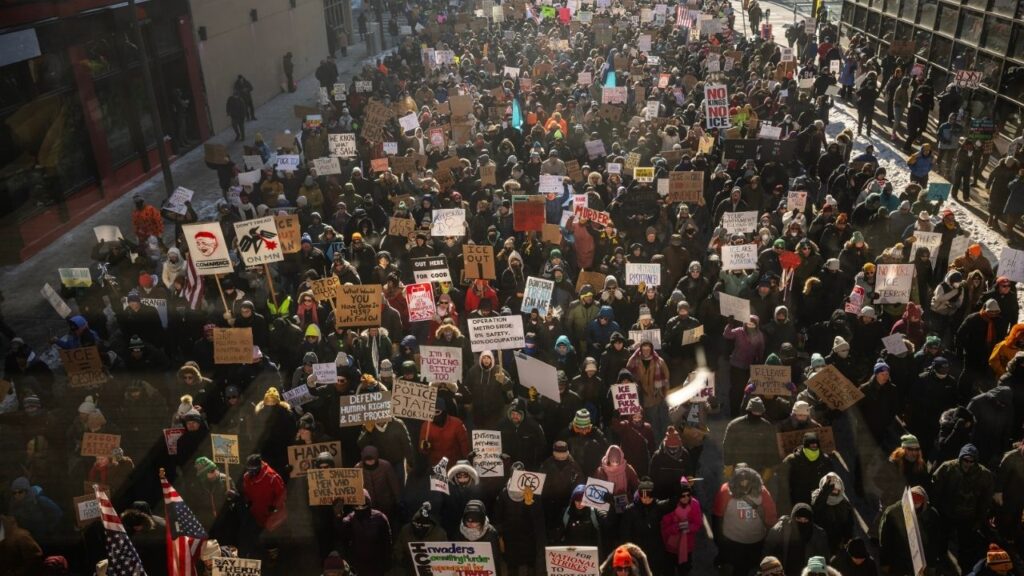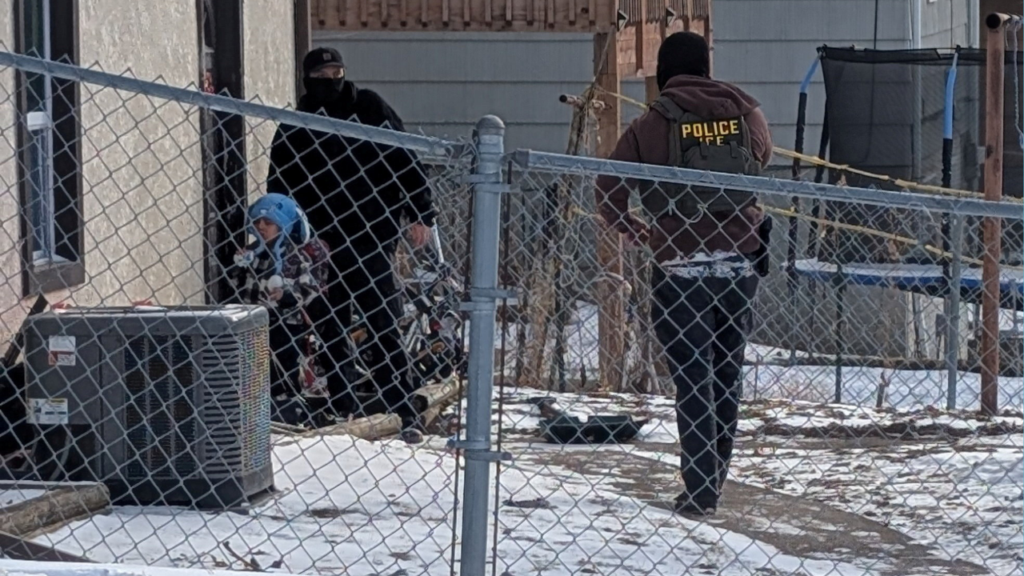President-elect Donald Trump speaks during a meeting with the House GOP conference, Nov. 13, 2024, in Washington. (AP File)

- Trump asks Supreme Court to delay TikTok ban, seeking political resolution while opposing immediate enforcement of national security law.
- TikTok challenges law mandating divestment, arguing First Amendment violations; Supreme Court to hear case January 10, 2025.
- Biden administration defends TikTok ban, citing national security risks, while admitting no evidence of China's misuse of platform data.
Share
|
Getting your Trinity Audio player ready...
|
President-elect Donald Trump asked the Supreme Court on Friday to pause the potential TikTok ban from going into effect until his administration can pursue a “political resolution” to the issue.
The request came as TikTok and the Biden administration filed opposing briefs to the court, in which the company argued the court should strike down a law that could ban the platform by Jan. 19 while the government emphasized its position that the statute is needed to eliminate a national security risk.
“President Trump takes no position on the underlying merits of this dispute. Instead, he respectfully requests that the Court consider staying the Act’s deadline for divestment of January 19, 2025, while it considers the merits of this case,” said Trump’s amicus brief, which supported neither party in the case and was written by D. John Sauer, Trump’s choice for solicitor general.
The argument submitted to the court is the latest example of Trump inserting himself in national issues before he takes office. The Republican president-elect has already begun negotiating with other countries over his plans to impose tariffs, and he intervened earlier this month in a plan to fund the federal government, calling for a bipartisan plan to be rejected and sending Republicans back to the negotiating table.
He has been holding meetings with foreign leaders and business officials at his Mar-a-Lago club in Florida while he assembles his administration, including a meeting last week with TikTok CEO Shou Chew.
Trump has reversed his position on the popular app, having tried to ban it during his first term in office over national security concerns. He joined the TikTok during his 2024 presidential campaign and his team used it to connect with younger voters, especially male voters, by pushing content that was often macho and aimed at going viral.
He said earlier this year that he still believed there were national security risks with TikTok, but that he opposed banning it.
Related Story: Supreme Court Will Hear Arguments Over the Law That Could Ban TikTok
Court to Hear Oral Arguments on Jan. 10
The filings Friday come ahead of oral arguments scheduled for Jan. 10 on whether the law, which requires TikTok to divest from its China-based parent company or face a ban, unlawfully restricts speech in violation of the First Amendment. The law was was signed by President Joe Biden in April after it passed Congress with broad bipartisan support. TikTok and ByteDance filed a legal challenge afterwards.
Earlier this month, a panel of three federal judges on the U.S. Court of Appeals for the District of Columbia Circuit unanimously upheld the statute, leading TikTok to appeal the case to the Supreme Court.
The brief from Trump said he opposes banning TikTok at this junction and “seeks the ability to resolve the issues at hand through political means once he takes office.”
In their brief to the Supreme Court on Friday, attorneys for TikTok and its parent company ByteDance argued the federal appeals court erred in its ruling and based its decision on “alleged ‘risks’ that China could exercise control” over TikTok’s U.S. platform by pressuring its foreign affiliates.
The Biden administration has argued in court that TikTok poses a national security risk due to its connections to China. Officials say Chinese authorities can compel ByteDance to hand over information on TikTok’s U.S. patrons or use the platform to spread or suppress information.
But the government “concedes that it has no evidence China has ever attempted to do so,” TikTok’s legal filing said, adding that the U.S. fears are predicated on future risks.
In its filing Friday, the Biden administration said because TikTok “is integrated with ByteDance and relies on its propriety engine developed and maintained in China,” its corporate structure carries with it risk.


